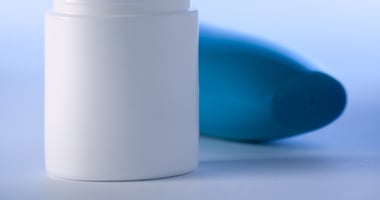Intranasal esketamine taken twice weekly can rapidly reduce symptoms of people with...
Ketamine-Related Compound Studied for Antidepressant Properties
 |
Now researchers have found that a compound related to ketamine called GLYX-13 produces similar antidepressant effects but without the undesirable side effects. In studies using rats, GLYX-13 enhanced memory and learning and had antidepressant-like effects without the side effects, said Northwestern University molecular neurobiologist Joseph Moskal, Ph.D., and colleagues in last month’s Neuropsychopharmacology. The work was funded by the National Institute of Mental Health.
The compound may work by triggering a sequence that leads to increased communication between neurons, they suggested. Phase 2 clinical trials are now exploring dosing levels in patients who have failed other antidepressant treatments, said Moskal.
To learn more about ketamine's antidepressant effects, see Psychiatric News here.
(Image: FikMik/Shutterstock.com)





